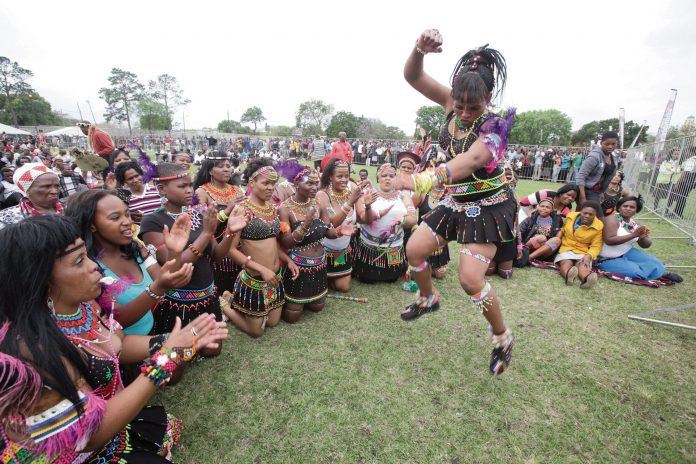Johannesburg- Since the 70s, the UN defined heritage in terms of natural and cultural phenomena, as well as combinations of both. But in recent years, the South African take on heritage has increasingly veered towards the most superficial aspects of culture.
Already in 2005, there was a well-sponsored media campaign to dumb down Heritage Day into boerewors day.
The original and rather inelegant substitution of Heritage Day for Shaka Day was in keeping with a discernible strategy to paper over the cracks.
Democratic South Africa itself was founded “somewhere over the rainbow” – as Judy Garland once sang in the Wizard of Oz fairytale. With bits of “Madiba magic” and pieces of “miracle” marinated in a “negotiated revolution” overnight, South Africa embarked on its long walk to Neverland, along the yellow brick road.
[membership level=”1″]Any wonder our Heritage Day commemorations have been growing more in form and less in substance? Presidential Heritage Day speeches from Madiba up to the current incumbent have had one dominant characteristic; they revolve around heritage as ephemeral culture with isolated and very few references to the natural dimensions of heritage.
In his Heritage Day speech last year, President Cyril Ramaphosa touched very briefly on biodiversity and the cradle of human kind. For the rest, his speech was about maskandi, Malay choral music, sokkie treffers, amapiano and the #JerusalemaChallenge.
Don’t get me wrong, I have nothing against the cultural aspects of heritage. Few people could be as fanatical about South African cultures, music, languages and literature than I am. I listen to such varied South African musical genres as that of Shwi Nomtekhala, Sho
Madjozi, Vusi Ximba, Fokofpolisiekar, Jonas Gwangwa, Budhaza Mapefane and Ladysmith Black Mambazo.
In several lectures, articles and in policy formulation platforms, I have championed the cause of indigenous African languages, including their use as languages of instruction.
However, the tendency to portray heritage exclusively in terms of culture, while delinking the cultural from the natural, as well as decoupling the cultural from the material, points to a cross-cutting fault line. Not even the National Heritage Council’s distinction between
tangible and intangible aspects of heritage remedies the situation.
If, as the UN intimates, heritage is what we inherit both from nature and from culture, then the land mass that we call South Africa, all that is above, upon and beneath it, as well as all the waters that surround it, constitute our most basic heritage.
Since land access, tenure and ownership remains in the hands of a few, our leaders have avoided linking land to heritage, like the plague. It is much safer to reduce heritage to dress, rituals, art, languages and cuisine.
So problematic has been the South African approach to the economic dimensions of heritage that some of our eight or so UN heritage sites are not really available and accessible to all South Africans.
If we continue to define heritage only in terms of the most malleable aspects of culture to the exclusion of its agrarian, natural and economic dimensions, then we can forget about heritage ever becoming a basis for reconciliation and nation-building.
For a reconciled nation to emerge, at least two conceptual shifts need to happen. The first shift requires that we situate land at the centre of our understanding of heritage. Second, we need to shift from an exclusive emphasis on reconciliation between human beings to an emphasis on the reconciliation of human beings to land and to the environment. Without environmental sustainability, there will soon be no heritage to speak about.
At the height of the Harlem renaissance in the US, African American poet Countee Cullen published a poem titled Heritage. But 300 hundred years plus several thousand miles stood between him and his heritage – Africa. So he had to make do with stereotypical images of Africa: copper sun, scarlet sea, jungle track, spicy grove and cinnamon trees.
Not satisfied with the Africa he was allowed to imagine, Cullen built his entire poem around the refrain: What is Africa to me?
Conceptually exiled in the fantasy land of Oz, somewhere over the rainbow, where heritage melts like marshmallows and evaporates like dew, many South Africans will wish to join Cullen in asking: What is heritage to us? Is it song, food and dance or does it include the sprawling vineyards of Franschoek, and the Anglo American empire of platinum mines?
- Professor Maluleke is a senior research fellow at the University of Pretoria Centre for the Advancement of Scholarship. Follow him on Twitter @ProfTinyiko

To read more political news and views from this week’s newspaper, click here.
Follow @SundayWorldZA on Twitter and @sundayworldza on Instagram, or like our Facebook Page, Sunday World, by clicking here for the latest breaking news in South Africa. To Subscribe to Sunday World, click here.
Sunday World
[/membership] [pmpro_signup submit_button=”Register” level=”1″ login=”1″ redirect=”referrer” short=”false” title=”Register to view Exclusive Content” short=”true” custom_fields=”true”]



